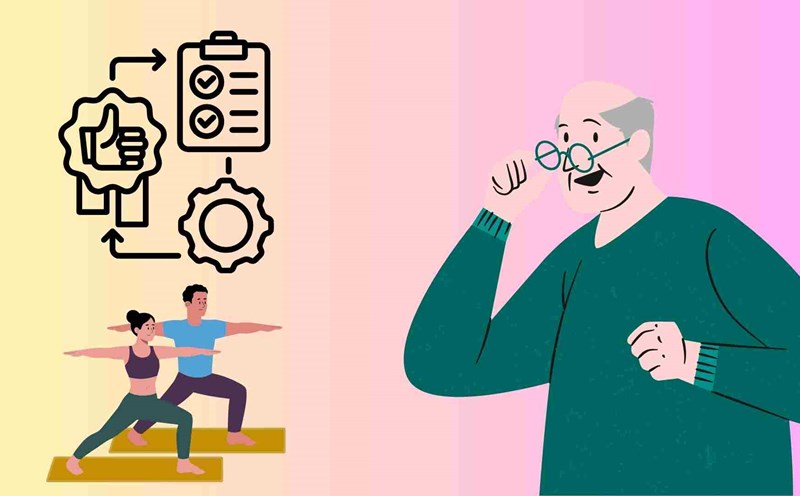How does alcohol affect muscle recovery?
Strength exercises such as squats and deadlifts create micro-traumats in muscle fibers, stimulating the body to increase protein synthesis to recover and develop muscles. Protein synthesis typically peaks at 3-4 hours after exercise, says Dr. Benjamin Gordon, assistant professor of applied physiology and exercise at the University of Florida (USA). If you drink alcohol within 1-2 hours of exercise, this reaction can be significantly reduced."
The reason is that alcohol hinders the mTOR pathway, an important mechanism for regulating muscle protein synthesis. Although drinking later after the peak period, the impact still exists but is less severe.
In addition, some studies show that drinking alcohol regularly after exercise can reduce testosterone, a hormone important for muscle growth, while slowing recovery and reducing performance.
Dual effects: Dehydration and reduced energy reserves
Alcohol is not included in the post-workout water intake. Kelli Santiago, a sports nutritionist at the University of Cleveland Hospital (USA), affirmed: All fluids are counted in daily water needs, except for alcohol. This is the only exception, and alcohol cannot be used to compensate for water.
In addition, alcohol is a form of carbohydrate but the body converts it like fat, not supporting the recovery of glycogen, the main source of energy after exercise. Therefore, after exercising, instead of drinking beer or alcohol, you should supplement healthy carbohydrates such as fruits and whole wheat breadcrumbs.
Sarah Wick, Director of Sports Nutrition at the Jameson Crane Institute of Sports Medicine, Ohio University (USA), also warned: "After drinking a lot of alcohol, make sure to re hydrate for a few consecutive days and avoid high-intensity exercise for at least 48 - 72 hours, because the body needs time to recover and eliminate alcohol".
Should you completely stop alcohol when exercising to increase muscle mass?
According to Gordon, if you only drink alcohol occasionally and avoid it right after the workout, the impact on the muscles is insignificant. However, if the exercise results do not improve, the cause may come from nutrition, sleep or an unreasonable exercise plan.
Alcohol is toxic to many systems in the body, from the cardiovascular system, the immune system to sleep and mood. Therefore, to optimize the effectiveness of strength training, experts recommend:
Avoid drinking alcohol at least a few hours after exercising.
Drink enough water and eat recovery meals rich in protein and healthy carbohydrates.
Limit weekly alcohol consumption according to recommendations: men ≤ 2 glasses/day, women ≤ 1 glass/day.
Occasionally drinking a glass of beer or wine will not affect your results, but drinking it regularly, especially right after exercise, will silently slow down your muscle growth.











